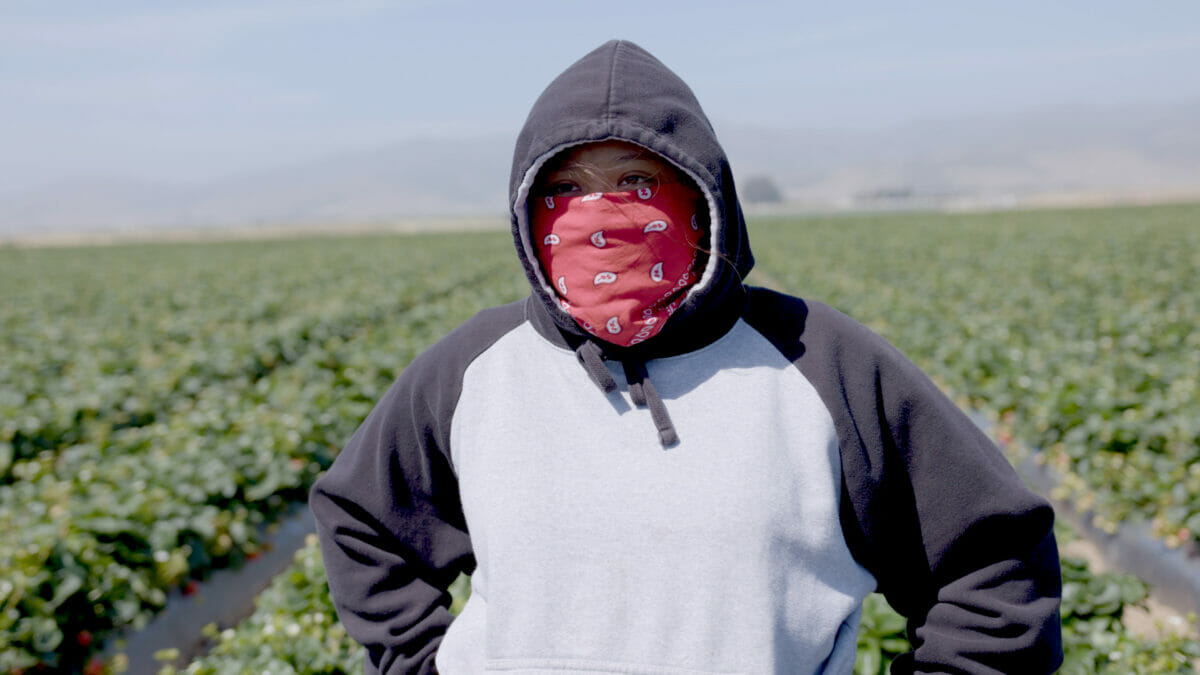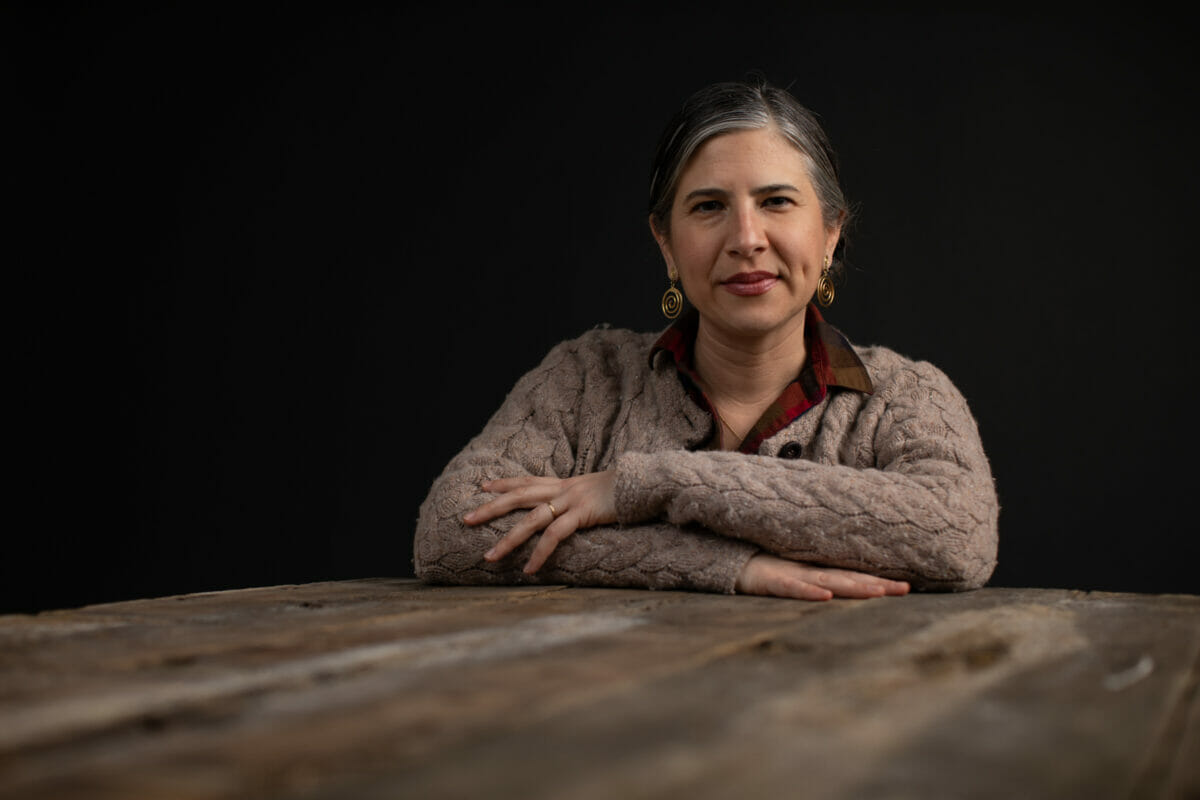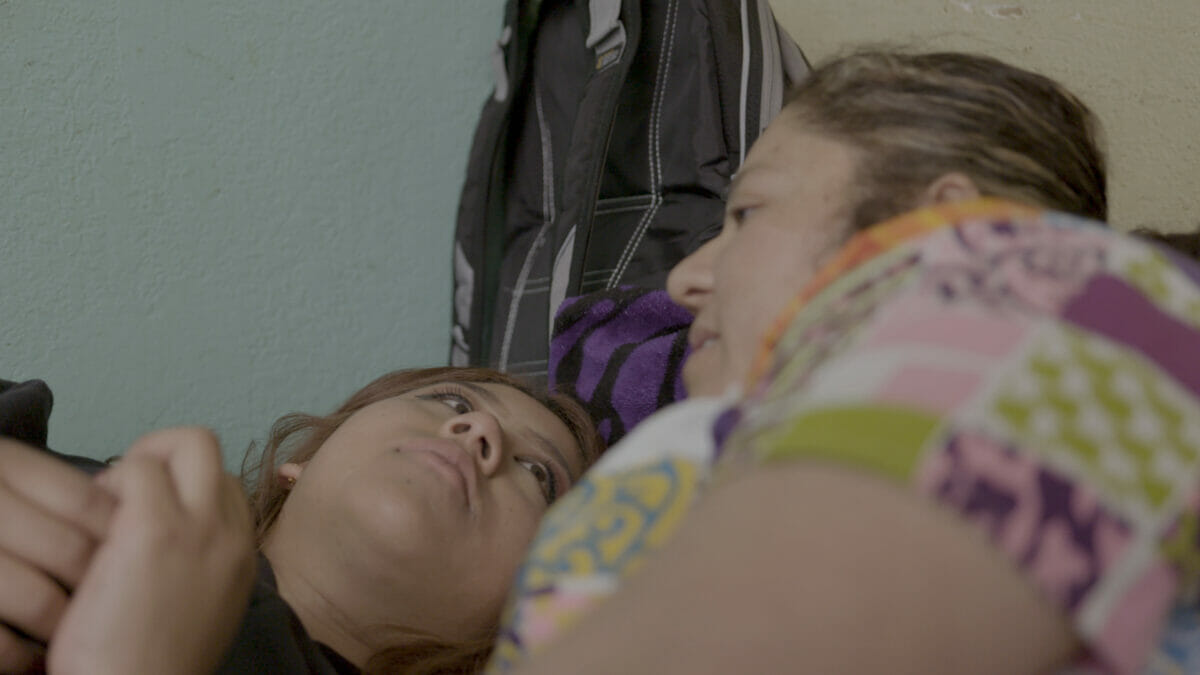Fruits of Labor follows one farm worker as she works two jobs to support her family while navigating high school.

A new documentary, premiering on PBS’s POV series today, follows a California teenager with dreams of graduating high school and going to college who is forced to work in agriculture when ICE raids threaten her family.
Called Fruits of Labor, the documentary follows 18-year-old Ashley Pavon as she juggles working her two jobs while navigating school and family obligations. The film is centered in Watsonville, California, a coastal city near Santa Cruz, where strawberries are the main crop and where many residents are connected to the agricultural sector. To help support her family, Ashley finds jobs picking strawberries that are clumped tightly together in huge rows and packing frozen strawberries in a processing plant.
Although Ashley’s is just one story, filmmaker and director Emily Cohen Ibañez aimed to highlight the realities of so many agricultural workers, many of them teens like Ashley, who have to labor under harsh conditions while just barely scraping by. Ashley and her family live in a cramped house with another family, sharing one washroom among 12 people. It’s a reality for many Americans, says Cohen Ibañez. “We have half a million children today working in agricultural fields, despite it being one of the most dangerous forms of work in the United States.”

Filmmaker and director Emily Cohen Ibañez. Photo by Andy Lemmis.
Throughout the film, there’s a sense of dread that permeates each scene. We watch as Ashley shops for a prom dress with a looming unease. We see Ashley and her mother, Beatriz, lying on a bed, talking about her nail polish, but things are tense. Even as Ashley smiles and hangs out with her boyfriend or her siblings or her friends, a heavy question hangs over every moment of the film and Ashley’s own life: Will Immigration and Customs Enforcement (ICE) officers show up today?
“There is a constant threat of not knowing when you could be swept up in a raid,” says Cohen Ibañez. “When Ashley came to me and said, ‘Oh, when I turn 18, I’m going to adopt my siblings in case my mom gets deported,’ I kind of freaked out.” The film shows Ashley and Beatriz meeting with a lawyer to walk through the process of making Ashley a legal guardian of her siblings in case the worst happens. (Beatriz has since started the process of citizenship and documentation).
Through Fruits of Labor, Cohen Ibañez wants to show the finesse involved in these jobs that are often dismissed as easy or unskilled. “We did a lot of slow motion in the field, and we had to ask Ashley to slow down to capture her picking the strawberries, because she moves so fast,” she says.
As the main breadwinner of the family, Ashley carries an incredible amount of responsibility on her shoulders, and Cohen Ibañez wanted to tap into that inner world in the film. Ashley narrates much of the documentary, talking about her hopes and dreams for the future—such as graduating high school, going to college and helping her siblings and her mother. She and Cohen Ibañez worked together to write the voiceover, and Ashley is credited as co-writer of the film. “It was very intentional to have Ashley be a part of the authorship of her own story,” says Cohen Ibañez. “I wanted this perspective of the complex young woman, and I wanted to show the universal struggles of a teenager coming of age, but within her particular situation and within the precarity of this contemporary moment.”

Ashley and her mother, Beatriz. Photo by Gabriella Garcia-Pardo.
Cohen Ibañez honed in on the little things that make up teenage-hood today, “whether it’s finding the right prom dress or worrying about your grades or falling in love for the first time and the teenage reflections on one’s existence.” At the same time, it’s clear that Ashley carries burdens that other teens do not. She’s not sure if she’ll graduate high school, for instance, because she often misses class to work her two jobs. She takes on the responsibility of caring for and financially supporting her younger siblings. She works to cultivate a community garden for people in her community, especially welcoming undoumented immigrants to join in the process. “I was impressed by her, and I was drawn towards her,” Cohen Ibañez says. “I loved learning her view on berries, for example, that her ancestors lived with the wild berries; I thought that was beautiful.”
Cohen Ibañez hopes that people watching the film will think deeply about the food chains on which we all rely and about who is involved at each step of the process. “To me, the food system is working for a very small percentage of people, but for the majority of us, it’s a broken system,” she says. “This is essential labor. We need it. Without farmworkers, we’re not going to make it. We aren’t going to grow all our food. It is great to garden. I love gardening, but most of us don’t have the capacity and the bandwidth to grow all of our food we need.”
The slice of life that Fruits of Labor explores underscores the need to elevate agricultural jobs and see farm workers as essential to both the economy and local communities. “Give that work the dignity and respect they deserve. A living wage, good bathrooms, hazard pay. We have these wildfires now [where farmworkers] are getting asthma and health problems,” says Cohen Ibañez. “This is treating people as if they’re not full human beings. We need to change that.”
Fruits of Labor debuts on PBS today, and is available for streaming on pbs.com.
Have a look at Canada’s screwed-up immigration regulations……………………..just walk across the border.
I live in the area, have seen people picking strawberries on many occasions. Am sorry to see what Ashley is going through. I favor immigration – legal immigration. The more, the merrier. Just come here legally. My wife came here legally, as did my son’s wife. We filled out the papers, went through the citizenship process. The process works. Sadly, Ashley’s plight could have been avoided if only her mother had decided to come here legally. She knew the likely consequences. The USA, as a sovereign country, has the right and duty to protect its’ borders. Try going to any… Read more »